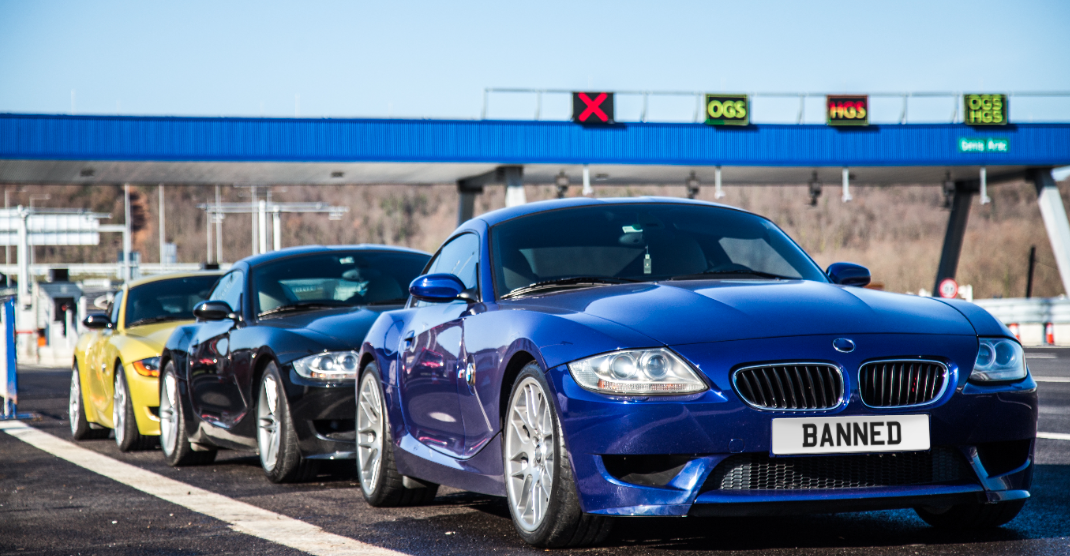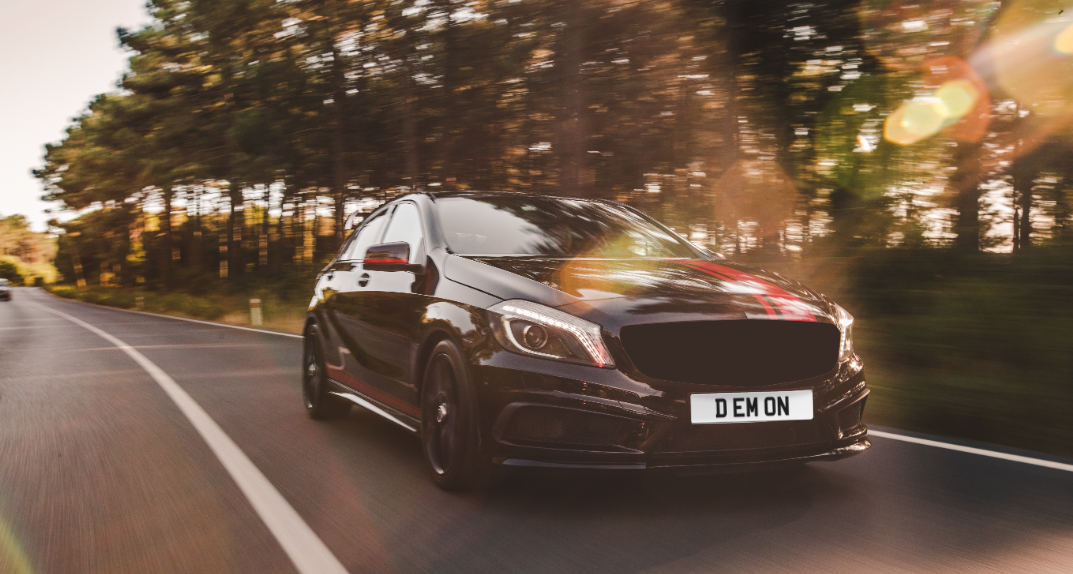Number plates are more than just identifiers for vehicles; they’re also an opportunity for personal expression. However, not every plate is allowed. Each year, the Driver and Vehicle Licensing Agency (DVLA) bans hundreds of plates that are deemed offensive, inappropriate, or misleading. The list of banned 2025 number plates is no exception.
For private plate owners and car enthusiasts, staying up to date with these changes is required. Whether you're buying a new plate or reviewing an existing one, knowing the latest regulations can help you avoid fines or registration issues. With the DVLA tightening restrictions, now’s the time to check if your plate complies, which can be achieved with a road legal number plate builder.
In this article, you'll uncover the key reasons number plates are banned in 2025, discover the official DVLA criteria for disallowing registrations, and learn practical steps to address banned plates, along with tips for finding compliant, personalised options. Whether you're a private plate owner, car enthusiast, or considering a custom design, this article equips you with the insights to stay compliant and informed.
Understanding Banned Number Plates

Banned number plates are those deemed unsuitable for use by the Driver and Vehicle Licensing Agency (DVLA). These plates are rejected if they contain offensive language, or inappropriate references, or are likely to confuse. While most plates are approved without issue, the DVLA carefully examines any combinations that could raise complaints or lead to problems.
In recent years, the DVLA has rejected plates like ‘B00BS’ and ‘15LAM’ for their potential to offend or mislead. This ongoing process means that number plates improve alongside societal norms and sensitivities.
The DVLA is responsible for reviewing vehicle registrations to make sure all plates comply with legal and ethical standards. This includes identifying combinations that may offend individuals or groups, as well as plates that could be mistaken for official authorities or organisations.
Historically, banned plates have included terms that are vulgar, offensive, or open to misinterpretation. For example, in previous years, plates hinting at swear words, controversial abbreviations, or offensive slurs have been excluded from circulation.
Drivers attempting to use banned plates face consequences such as fines, rejection of registration, or being required to replace the plate entirely. Knowing these rules is required for anyone who owns or plans to purchase a personalised registration.
Reasons for Banning Certain Plates
The most common reason for banning number plates is offensive or inappropriate content. Plates with explicit racial slurs, offensive acronyms, or crude puns are automatically flagged by the Driver and Vehicle Licensing Agency (DVLA). These combinations are removed to prevent causing offence or harm to the public. For instance, in 2024, the DVLA banned over 300 number plates, including combinations like 'GB24 WAR' and 'EU24 UKR', due to their potential to offend or cause controversy.
Misrepresentation is another issue that leads to plates being banned. For instance, some plates are designed to resemble official authorities, such as the police or emergency services, which can create confusion or be used to mislead. The DVLA strictly prohibits plates that mimic such official identifiers.
Public feedback also plays a role in banning certain plates. If a plate sparks complaints or is seen as controversial, it may be reviewed and subsequently removed from circulation. This highlights the need to balance creativity with compliance when designing a custom number plate.
Criteria Used to Determine Banned Plates
The DVLA follows a structured process to determine whether a number plate is suitable for use. Both automated systems and human reviews are used to assess plates for potentially offensive or inappropriate combinations.
Specific categories are prioritised when evaluating plates for bans. These include:
- Offensive language: Plates containing profanity, slurs, or explicit references are disallowed.
- Controversial terms: Anything that could spark complaints, such as political or socially insensitive references, is carefully scrutinised.
- Impersonation risks: Plates resembling official identifiers, such as those of the police or other authorities, are automatically flagged.
The DVLA also considers the context and possible interpretations of each plate. Even combinations that seem harmless at first glance may be rejected if they carry double meanings or could be misread as offensive.
By combining technology and manual review, the DVLA aims to maintain a fair and consistent standard while addressing ever-changing public sensitivities.
Examples of Banned Plates in 2025
Each year, the DVLA releases a list of banned number plates to prevent offensive or inappropriate combinations from being used on the roads. The 2025 list includes several plates that, while seemingly harmless at first, have been flagged due to their potential to offend or mislead.
Some examples of banned plates for 2025 include:
- WA25 TED
- UD25 UNK
- TE25 ROR
- GO25 HEL
- ST25 ABB
These plates have been removed for reasons such as resembling inappropriate language, containing offensive abbreviations, or being misinterpreted in ways that could upset others. The process behind these bans considers not just direct meanings but also possible double meanings or interpretations in context.
Even if a plate seems acceptable, it’s worth reviewing the DVLA’s approved list to avoid unexpected issues. frequently reviewing DVLA updates is needed to avoid unintentional violations of these rules.
Alternatives to Banned Number Plates

If your desired number plate is on the banned list, there are still plenty of ways to personalise your vehicle without avoiding potential conflicts with DVLA rules. With a bit of creativity and some simple guidelines, you can design a plate that reflects your style while meeting all legal requirements.
One option is to modify your design by choosing different letter and number combinations. Adjustments to spacing or replacing questionable characters can make a big difference while still maintaining a personal touch. Always cross-reference your ideas with the DVLA’s list of approved plates to avoid disappointment.
For those looking for unique and legal custom plates, working with trusted vendors is a smart choice. Their expertise can help you craft a stylish, road-legal plate that stands out without breaking any rules.
Finding a compliant alternative doesn’t have to mean sacrificing individuality. With the right approach, you can enjoy a distinctive plate that improves your vehicle and keeps you road-legal.
What to Do if Your Plate is Banned
If you discover that your number plate has been banned, the first step is to act promptly. The DVLA will typically notify you if your plate is deemed unacceptable, providing clear instructions on what to do next.
Here’s some simple tips to resolve the issue:
- Contact the DVLA: Reach out to clarify the reasons for the ban and confirm your next steps.
- Appeal if necessary: If you believe the plate has been wrongly flagged, you may have the option to appeal the decision. Be prepared to explain why the plate should be approved.
- Replace the plate: If the ban is upheld, you’ll need to replace your plate. The DVLA can guide you in acquiring a new registration number. This process typically involves some cost, so budgeting for this is useful.
For future purchases, it’s helpful to work with reputable suppliers who are familiar with DVLA guidelines. They can help you avoid purchasing plates that may face rejection.
At Demon Plates, we provide high-quality options to ensure your plates are compliant and personalised. However, please note that we assist with the registration process, which is ultimately handled by the DVLA.
